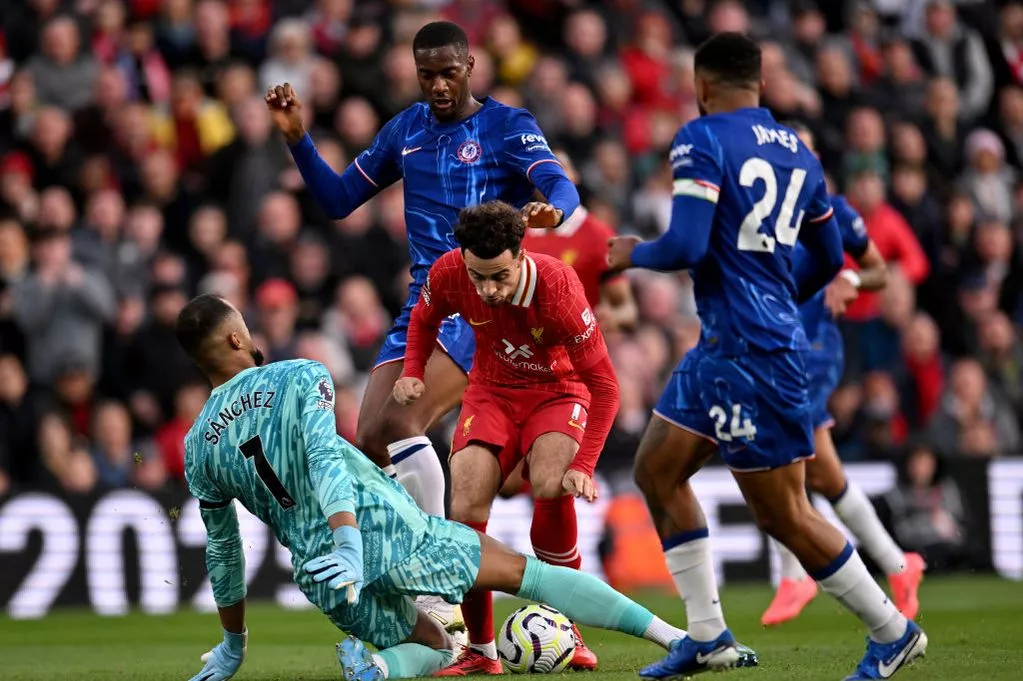Referee John Brooks made a crucial decision during Sunday’s highly anticipated Premier League clash between Liverpool and Chelsea when he initially awarded a penalty to the Reds. The decision came after an incident involving Chelsea’s goalkeeper, Robert Sanchez, and Liverpool midfielder Curtis Jones. Brooks believed Sanchez had fouled Jones, prompting him to point to the spot. However, this call did not stand for long, as the VAR team soon got involved, signaling the referee to review the incident on the pitchside monitor.
Upon further review, Brooks reversed his decision. The footage showed that Chelsea’s goalkeeper had, in fact, not committed a foul on Jones, leading to the cancellation of the penalty. The Premier League later explained the sequence of events in a post on the Premier League Match Centre X account. It confirmed that while the referee had initially awarded the spot-kick for what appeared to be a foul by Sanchez, a closer inspection using VAR revealed that the contact was not sufficient to warrant a penalty.
This wasn’t the only controversial moment involving penalty decisions during the match. Earlier in the game, Liverpool had been awarded another penalty after Levi Colwill was judged to have brought down Curtis Jones inside the box. This time, there was no need for VAR intervention, as the decision was clear. Mohamed Salah, who had been involved in another earlier appeal that was turned down, stepped up and confidently converted the spot kick, giving Liverpool a crucial advantage.
The match’s intensity only heightened when Chelsea felt they were denied a legitimate penalty of their own. After a challenge by Liverpool’s Trent Alexander-Arnold on Jadon Sancho, many Chelsea players and fans believed a foul had occurred. However, much to their frustration, VAR chose not to intervene, leaving Chelsea without the opportunity to level the game from the penalty spot.
The series of penalty-related incidents in this match sparked a wide range of reactions from both sets of supporters. Liverpool fans were delighted with their team’s ability to capitalize on their awarded penalty but also left to wonder if the second one could have further extended their lead. On the other hand, Chelsea supporters were livid with the officiating, feeling that their team had been treated unfairly on two crucial occasions—once with the overturned Liverpool penalty and again with their own denied appeal.
These types of decisions have reignited the debate about the consistency of VAR in the Premier League. While technology is meant to help referees make accurate calls, fans and pundits often argue about the transparency and fairness of the decisions made. Sunday’s match highlighted the ongoing challenge of balancing human judgment with technological assistance, as both sides walked away feeling aggrieved by the refereeing.
As this clash demonstrated, VAR continues to be a divisive tool in modern football, one that can alter the course of a game with just a few seconds of review. Despite its intention to promote fairness, questions remain about its implementation, especially when critical moments like these unfold on the pitch. In the end, both Liverpool and Chelsea had reasons to feel hard done by, ensuring that this match will be discussed long after the fin
al whistle.
